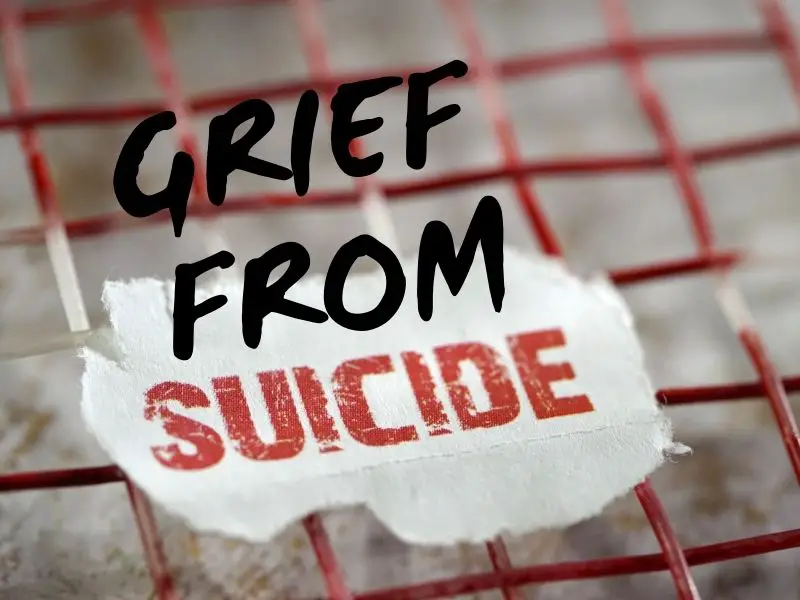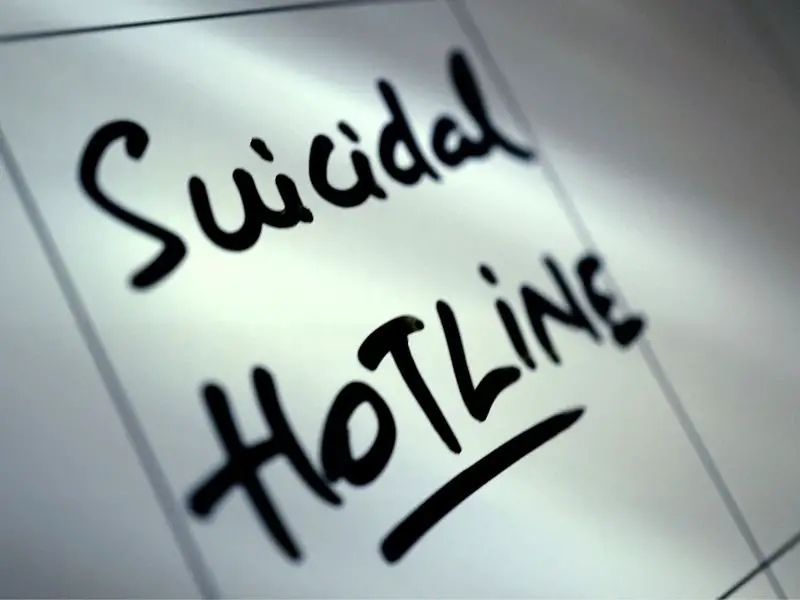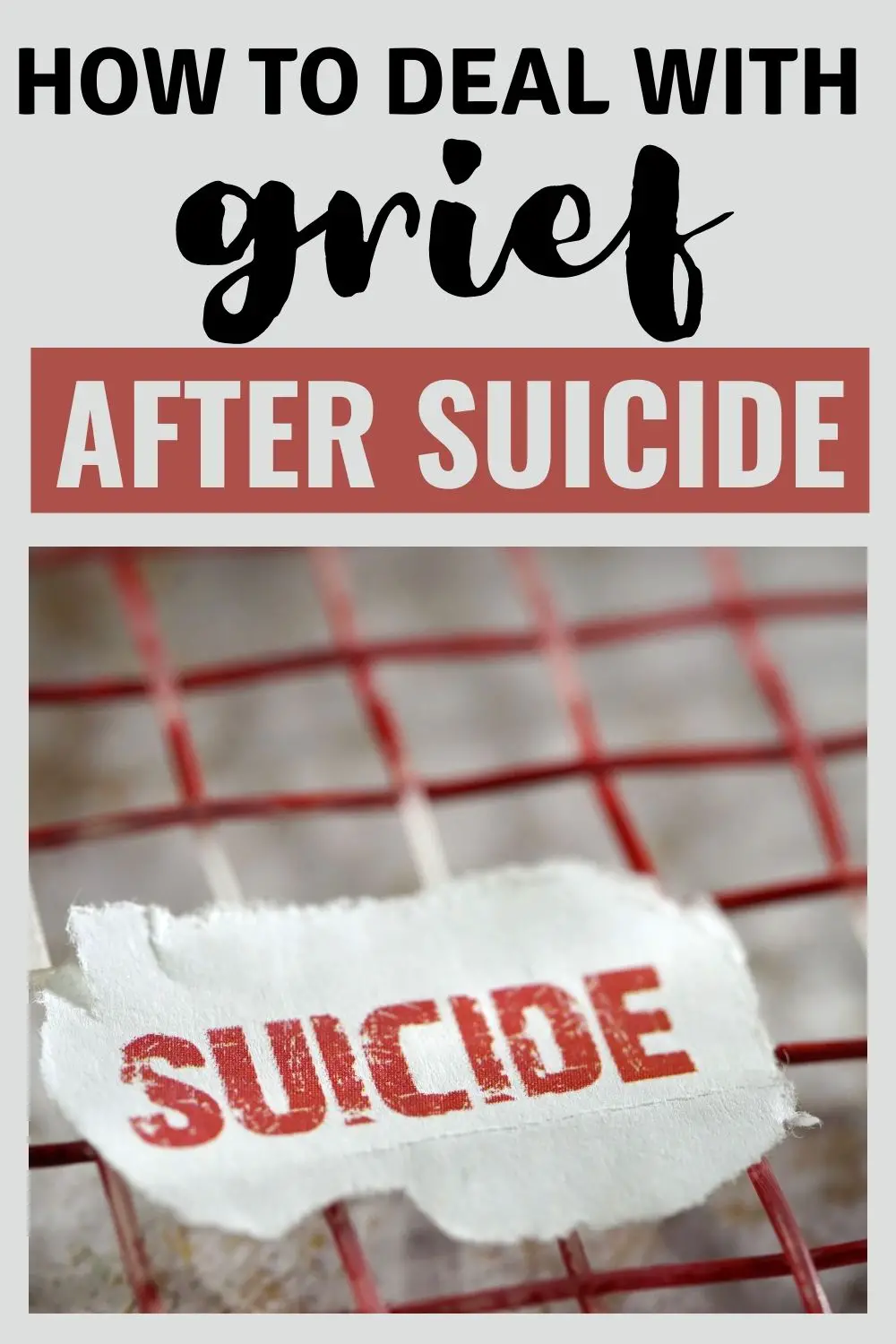Grief after suicide … a complicated bereavement!

“The suicide does not play the game, does not observe the rules. He leaves the party too soon, and leaves the other guests painfully uncomfortable”. ~Joyce Carol Oates (1978)
Grief After Suicide …
A great loss due to suicide can be among the most painful and difficult losses to bear. You can be left with huge burdens of guilt, anger, shame, and regret. It’s very common to feel that you caused the suicide or should have been able to prevent it.
You may beat yourself up with unanswered questions like these:
- “Why didn’t I know how serious this was?”
- “Wasn’t my love enough to save him?”
- “Why didn’t I get her some help in time?”
- “How did I fail him?
- “What will people think?”
Having suicidal thoughts yourself? Call the National Suicide Prevention Lifeline at 800-273-8255 any time of day or night. YOU are LOVED!

How to deal with shame after losing a loved one to suicide
There is usually a stigma attached to suicide. And you as a suicide survivor must bear the brunt of the shame.
Added to this are discomfort and awkwardness. And people just don’t know what to say to you, so they stay away.
This adds to your feelings of being deserted and further complicates your grief. Suicide can also lay waste to family dynamics and leave your family in shambles.
Here are some strong strategies to try that may help you through this trying time:
- Do a reality check. Regret is a normal reaction, but you need to put this in perspective: did you cause this death? No, you didn’t. He caused his own death. He was ill, not you. Quit blaming yourself.
- Forget about the shame and stigma that can surround suicide. You didn’t cause this mess and don’t deserve to feel embarrassed. Concentrate on your own healing and grief recovery.
- Use the word “suicide”. If you keep the real cause of death, suicide, a secret, you won’t be able to express your grief in an open and healthy manner. This can bottle up your sorrow and keep it from progressing normally.
- On the surface, it may seem that suicide is a very selfish act. Your loved one left you behind to deal with all the fears, doubts, anger, guilt, and grief. But you must keep in mind that he or she was mentally ill. Anyone who intentionally commits suicide is most definitely not in their right mind. You might even call it terminal mental illness. In most cases, it is likely that the victim did not really think through how horribly his act might hurt you. He was simply in too much pain to live. Yet, he or she did desert you and leave you with crushing emotional burdens. It’s perfectly alright for you to feel extreme anger and rage at the loved one who left you behind. And if it helps you cope, and eases your guilt, place the blame right where it really does belong… with the one who committed suicide.
Stages of grief after suicide
Losing someone to suicide will produce emotions and reactions just like other losses. Very similar to the seven stages of grief we talked about before, there are several stages of grief from suicide. They won’t necessarily happen in this order or even present themselves in your life: just be aware that they can happen, and when they do, know that all you are feeling is normal.
Let yourself feel all the feelings: don’t suppress them.
- disbelief and denial – the first instinct is to not believe that your loved one was able to commit suicide
- guilt and pain – you’ll come up with all kinds of questions as to why it happened, why you didn’t see it coming. And then pain makes its way into your soul: a pain like no other
- resentment – as you struggle to understand what happened, you’ll start looking for someone to blame. Anger and resentment will rise up and if not controlled, lashing out at family and friends could turn them away when you need them most
- depression and loneliness – after the previous intense feeling, you’ll resign yourself to suffering alone. this time is important to the healing process, so don’t rush it (or let anyone tell you to snap out of it)
- a light at the end of the tunnel – as time goes on, and you begin to live life in spite of your loss, depression will start fading away, friendships will find their way back, and some of your wants and needs start to become important again. you feel like you see a light at the end of the tunnel
- rebuilding – with a sliver of hope in the future, your mind will start seeking realistic solutions to living life without your loved one. You’ll start to realize that life goes on, and while you’ll never be the same, you can restore some of the dreams and plans you had before your loss
- embracing hope – by now, you’ve experienced many of the stages of grief, and pain will start to fade away. You’ll start to think of your loved one without agonizing in pain. Instead, you’ll remember the good times you had together and life will feel hopeful again.
Even after going through these grief stages, you’ll have days (and sometimes weeks) when pain and sadness will come again. Don’t reject it: instead, “visit” that place of suffering, but then return to living life to the fullest. Don’t beat yourself up!
Help for survivors of suicide deaths
Counseling during the first few weeks after a suicide can be very helpful to prevent overwhelming despair.
Support groups can be especially beneficial in cases of suicide. Sympathetic group members can provide the support that might be missing from your normal social support system due to embarrassment and shame.
Those who have experienced loss to suicide themselves are far more apt to understand what you are going through and be able to provide you with a more realistic perspective on the situation.
Try this website to find a personal support group in your location or find a group here.
You may also find help and comfort from these excellent books.
No Time to Say Goodbye: Surviving The Suicide Of A Loved One After Suicide (Christian Care Books Book 4)
After Suicide (Christian Care Books Book 4)



